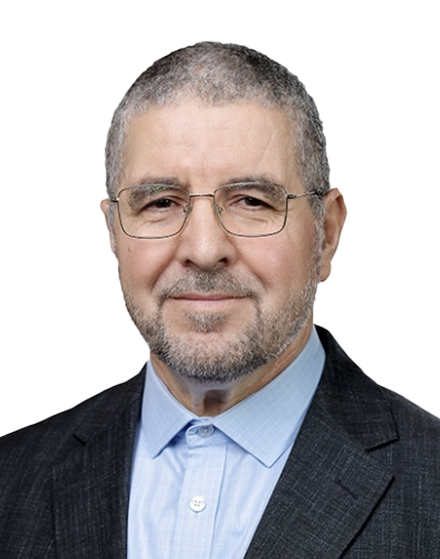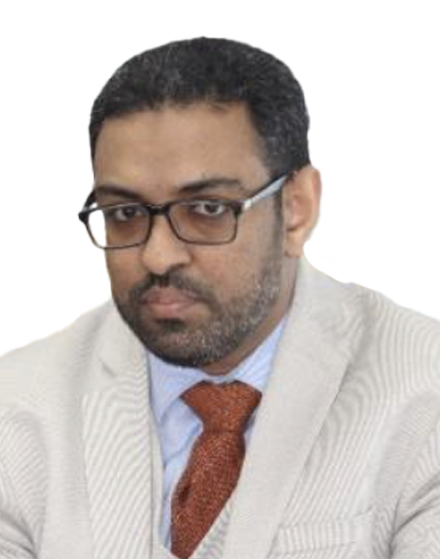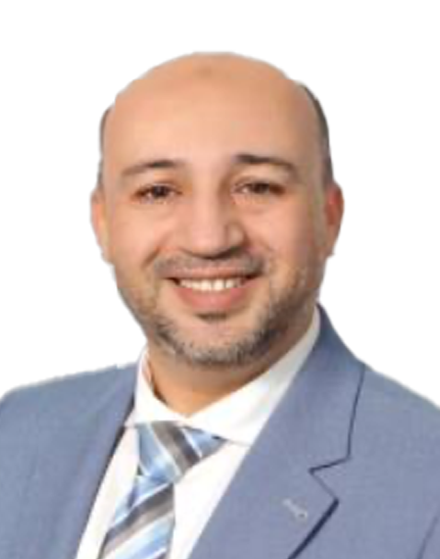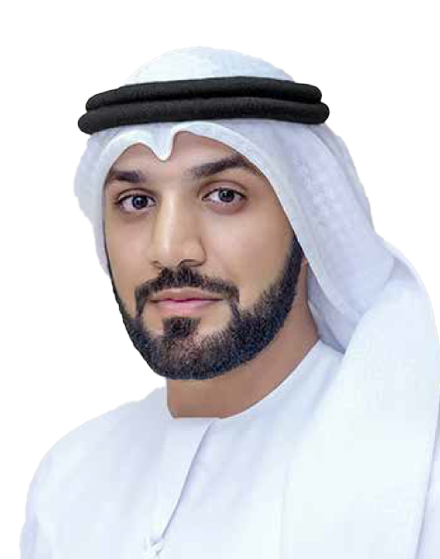Exploring the Vision of Sheikh Abdullah bin Bayyah: Jurisprudential Creativity from Foundations to Application
Programme Type
Language
Venue
Community Stage - Hall 10
Date & Time
- 26 Apr 05:00 PM
Session Details
In exploring jurisprudential methodologies that address modern challenges, this session focuses on one of the leading contemporary scholars who has endeavored to enhance Islamic jurisprudence as an effective means to foster peace and coexistence.
During the seminar, attendees will examine how Sheikh Abdullah bin Bayyah successfully merged foundational jurisprudence with real-world applications, showcasing practical instances from his academic contributions that provide modern solutions to present-day issues.
This session will delve into the idea of "achieving the goal" (Tahaqiq al-Maqsad), examining its theoretical and practical dimensions, while emphasizing the foundational principles associated with this concept. It will also highlight Sheikh Abdullah bin Bayyah's significant contributions, particularly in areas related to peace, pluralism, and the relationship between religious texts and real-life situations. The discussion will include the importance of maqasid-based ijtihad (juridical reasoning) in navigating contemporary developments, providing analytical insights into several of Sheikh Abdullah bin Bayyah's fatwas that exemplify this equitable jurisprudential method.
This session offers a chance to investigate how jurisprudential thought can adapt in response to societal changes, and how the concept of "achieving the goal" can act as a connection between Islamic teachings and the evolving reality, all within a framework that encourages dialogue and moderation.
In collaboration with The World Muslim Communities Council
Speakers

Prof Mohand Mechenene
Prof Mohand Mechenene

Dr Mahjoub Bin Banih
Dr Mahjoub Bin Banih

Dr Yousef Hmito
Dr Yousef Hmito

HE Dr Khalifa Al Dhaheri - Moderator
HE Dr Khalifa Al Dhaheri - Moderator

Prof Mohand Mechenene
Professor of Higher Education at Mohamed bin Zayed University for Humanities
Holder of a Ph.D. in Islamic Sciences

Dr Mahjoub Bin Banih
Researcher and academic specializing in Islamic thought, and one of the prominent figures in the Abu Dhabi Forum for Peace, where he actively contributes to shaping moderate religious discourse and promoting the values of dialogue and tolerance. He also serves as the Assistant Secretary-General of the Conference for Peace in Africa, working on developing projects aimed at enhancing peace and reconciliation.
During the closing session of the Conference for Peace in Africa, he announced the launch of an electronic platform for reformers and peacebuilders, designed to provide a space for dialogue and the exchange of experiences between scholars, traditional leaders, and thinkers.
He has extensive expertise in the fields of maqasid jurisprudence and achieving the goal (Tahaqiq al-Maqsad), working to renew Islamic thought in line with the challenges of the modern era through an approach that blends foundational jurisprudence with practical application. He regularly participates in conferences and intellectual forums that aim to build new perspectives that align with global changes, grounded in authentic Islamic principles that support social peace and inter-cultural coexistence.
Through his work at the Abu Dhabi Forum for Peace, he has played a role in shaping research projects and dialogue initiatives that help present Islam as a religion based on wisdom and the common good, emphasizing the importance of ijtihad (juridical reasoning) in achieving global security and stability.

Dr Yousef Hmito
Associate Professor at Mohammed bin Zayed University for Humanities in Abu Dhabi and the Director of the Emirati Scholars Preparation Program since 2021. He has held several academic and research positions, including Director of Research and Publication at the Al-Muwatta Center for Studies and Education, and Managing Editor of the Al-Muwatta Journal. He has also taught at the Casablanca Academy, Al-Qarawiyyin University, and Chouaib Doukkali University.
Specializing in Usul al-Fiqh (Islamic Jurisprudence) and the Maqasid al-Sharia (Objectives of Islamic Law), he has made significant contributions to research on issues related to peace and the renewal of Islamic jurisprudence, including works such as "The Tension Between the Universal and the Specific and the Goal of Peace" and "Updating the Concept of Terrorism in Light of Islamic Jurisprudence and Contemporary Realities." He has published numerous studies in peer-reviewed journals and participated in research projects aimed at rooting and renewing Islamic thought to meet contemporary challenges.
Known for his rigorous academic style and his ability to connect jurisprudential issues with current problems, he is regarded as one of the leading researchers in the field of Islamic and Maqasidi thought.

HE Dr Khalifa Al Dhaheri - Moderator
President of Mohammed bin Zayed University for Humanities, the Director-General of the Al-Muwatta Center for Studies and Education, and the Executive Director of the Forum for Promoting Peace in Muslim Societies.
A prominent figure in the academic and educational field in the United Arab Emirates, he has extensive experience in managing educational institutions and academic development. He leads the university with a vision aimed at enhancing human studies, promoting moderate Islamic thought, and supporting scientific research in the fields of social and human sciences.
He oversees the development of curricula and programs that contribute to instilling values of tolerance, coexistence, and cultural openness, focusing on modern education based on innovation and integrated research. He has also played a key role in supporting intellectual projects that aim to bridge cultural gaps and strengthen the university’s position as a global academic center.
He earned his doctorate in "Deconstructing Religious Extremism Discourse in the Experience of the United Arab Emirates – Methodology and Initiative."
